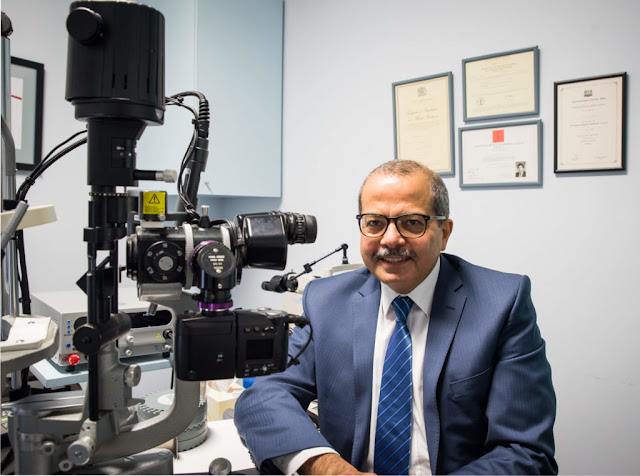All You Need To Know About Cataract Surgery
 |
| Dr Saf Bassili |
Cataract surgeries are usually performed to remove the eye lens and replace it with an artificial one. In normal individuals, the lens of the eye is clear. Cataract causes it to become cloudy, which starts affecting the individual’s vision.
An ophthalmologist performs the cataract surgery where the patient is not required to stay in the hospital when the surgery is over. The procedure can be done using ultrasound energy or through laser-assisted technology. It is generally a safe procedure but needs to be performed by a professional. Hence, do not hesitate to spend adequate time researching to find the right ophthalmologist, Melbourne.
Risks
Complications arising from cataract surgery are not common, but if they do, they can be treated easily.
Some of the risks that might occur after undergoing a cataract surgery include:
- Loss of vision
- Glaucoma
- Inflammation
- Secondary cataract
- Bleeding
- Retinal detachment
- Infection
- Dislocation of artificial lens
- Drooping eyelid
- Swelling
If you have another serious medical condition or an eye disease, the risk of having a complication will be greater. At times, the surgery may not be successful in improving the vision due to the underlying eye damage caused by other medical conditions, like macular degeneration or glaucoma. Therefore, in the presence of other eye conditions, it should be treated prior to the cataract surgery.
Preparing for the Surgery
Before you undergo surgery, you will be asked to do certain things. They are:
Undergoing Tests: A week before undergoing surgery, you will be asked to take an ultrasound test, painless in nature, for the purpose of measuring the shape and size of the eye. This will help in determining the correct type of lens for the implantation.
Discontinuing Medications: Your doctor will advise you to stop taking medications that have a chance of interfering with the treatment. Some medications might increase the risk of bleeding at the time of the procedure. Therefore, it is crucial that you inform your doctor regarding the types of medications you take regularly.
Using eye drops for reducing the risk of infection: The doctor may prescribe certain antibiotic eye drops a day or two before the surgery in order to reduce the risk of developing any infection.
Fasting before the surgery: Your doctor will ask you not to drink or eat anything 12 hours before commencing the surgery.
Preparing for the Recovery: In normal circumstances, you will be allowed to go home a few hours after the surgery. But, you will not be allowed to drive. You might require somebody to help you around in the house. The doctor will also ask you to participate in limited activities, like lifting and bending, for about a week in order to make sure that your recovery is not hindered in any way.
Cataract surgeries are known to be very successful in restoring vision. In case of any complication, do not hesitate to contact your doctor immediately.
Cataract surgeries are known to be very successful in restoring vision. In case of any complication, do not hesitate to contact your doctor immediately.

Love to read it,Waiting For More new Update and I Already Read your Recent Post its Great Thanks. eye rejuvenation surgery cost
ReplyDeleteNew web site is looking good. Thanks for the great effort. https://yaldoeyecenter.com/lasik-grand-rapids-mi/
ReplyDeletePositive site, where did u come up with the information on this posting? I'm pleased I discovered it though, ill be checking back soon to find out what additional posts you include. https://yaldoeyecenter.com/ltoledo-lasik/
ReplyDelete